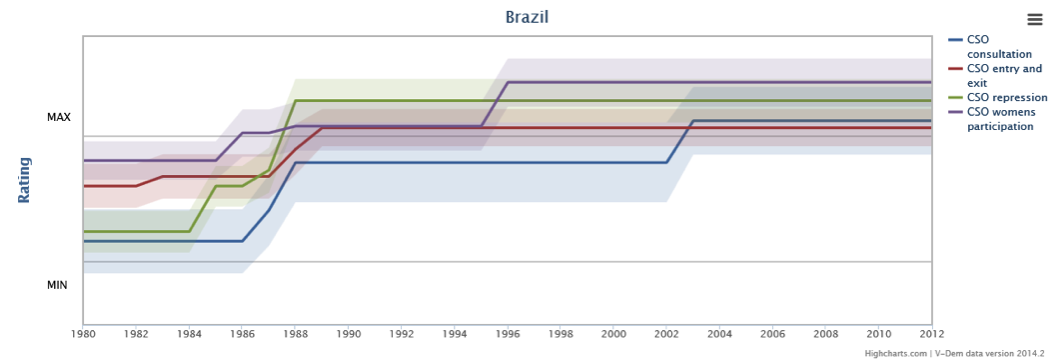The role of Civil Society Organizations
By: V-Dem Staff
Feb 12, 2015
Operating in the space between the ordinary citizen and the state, by promoting coordinated public action and protecting the rights of their members and other citizens, civil society organizations (CSOs) have been acknowledged for their important role in protecting and promoting democracy. Yet, when it comes to measures of Civil Society Organizations and the conditions surrounding them, valuable for research, policy-making and work on the ground, available data is limited. As of today, historical data covering many of the world’s countries is lacking.
V-Dem offers 11 indicators on CSOs, hopefully valuable to the CSO research community and policymakers. The V-Dem indicators include repression, control, consultation and structure of different kinds of CSOs, as well as the participation of women in the organizations. Four of them are included in the graph below, where the development of the role of the CSOs over time in Brazil can be examined. Apart from an overall increase in all four indicators over time, a quite sharp change can be noted around 1984-1988, around the time of Brazil’s most recent transition to democracy. In addition, women’s participation in CSOs seems to have experienced a leap in 1995-1996, while the CSO consultation increased significantly in 2002-2004.


